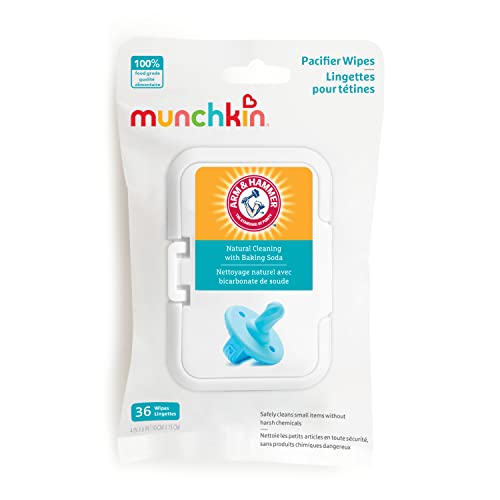
From Chaos to Calm: Stress-Free Parenting Tips That Really Work
Parenting is undoubtedly one of the most rewarding experiences in life, but it can also be incredibly stressful. From sleepless nights to tantrums and everything in between, the challenges of raising children can sometimes feel overwhelming. However, it doesn’t have to be this way. Stress-free parenting is not only possible but also beneficial for both parents and children.
When parents are stressed, it can have a negative impact on their overall well-being and their ability to effectively care for their children. Stress can lead to irritability, impatience, and even physical health problems. On the other hand, when parents are calm and relaxed, they are better able to respond to their children’s needs, provide a nurturing environment, and foster healthy development.
For children, growing up in a stress-free environment has numerous benefits. They are more likely to feel secure, loved, and supported. They are also more likely to develop healthy coping mechanisms and emotional regulation skills. Stress-free parenting sets the foundation for positive parent-child relationships and helps children thrive both emotionally and academically.
Identify Your Parenting Triggers and Learn to Manage Them
One of the first steps towards stress-free parenting is identifying your triggers – those situations or behaviors that tend to push your buttons and cause stress or frustration. Common parenting triggers include disobedience, messiness, lack of cooperation, and sleep deprivation.
Once you have identified your triggers, it’s important to learn how to manage them effectively. One strategy is deep breathing. When you feel yourself becoming stressed or overwhelmed, take a moment to pause and take several slow, deep breaths. This can help activate your body’s relaxation response and calm your mind.
Another helpful technique is positive self-talk. Instead of allowing negative thoughts or emotions to take over, consciously replace them with positive affirmations. Remind yourself that you are doing your best as a parent and that it’s okay to make mistakes. By reframing your thoughts in a positive way, you can reduce stress and approach parenting with a more calm and balanced mindset.
Create a Routine for Your Family
Routine is essential for both children and parents. It provides structure, predictability, and a sense of security. Children thrive on routine because it helps them understand what is expected of them and what will happen next. For parents, having a routine can help reduce stress by providing a framework for daily activities and responsibilities.
When creating a routine for your family, it’s important to consider the needs and preferences of everyone involved. Start by establishing regular wake-up and bedtime routines. This can help regulate sleep patterns and ensure that everyone gets enough rest. Next, create a schedule for meals, playtime, homework, and other activities. Be sure to build in time for relaxation and self-care as well.
Remember that flexibility is key when it comes to routines. While having a general structure is important, it’s also important to be adaptable and make adjustments as needed. Life happens, and unexpected events or changes in circumstances may require you to deviate from the routine occasionally. Embrace these moments as opportunities for growth and learning rather than sources of stress.
Practice Mindfulness and Meditation
Mindfulness and meditation are powerful tools for reducing stress and promoting overall well-being. Mindfulness involves paying attention to the present moment without judgment, while meditation involves focusing the mind on a specific object or activity.
Practicing mindfulness can help parents become more aware of their thoughts, emotions, and physical sensations. By cultivating this awareness, parents can better manage stress triggers and respond to their children’s needs in a calm and compassionate manner.
One simple mindfulness exercise is the body scan. Find a quiet place where you can sit or lie down comfortably. Close your eyes and bring your attention to your body. Starting from the top of your head, slowly scan down through your body, noticing any areas of tension or discomfort. As you become aware of these sensations, consciously relax and release them. Continue scanning down through your body until you reach your toes.
Meditation can also be a valuable practice for parents. Find a quiet space where you can sit comfortably and focus your attention on your breath. As thoughts or distractions arise, gently bring your attention back to your breath. Start with just a few minutes of meditation each day and gradually increase the duration as you become more comfortable with the practice.
Set Realistic Expectations for Yourself and Your Children
Unrealistic expectations can be a major source of stress for parents. It’s important to remember that no one is perfect, and parenting is a journey filled with ups and downs. Setting realistic expectations for yourself and your children can help alleviate stress and create a more positive and nurturing environment.
First and foremost, it’s important to recognize that children are individuals with their own unique personalities, strengths, and challenges. They will make mistakes, test boundaries, and have their own ideas about how things should be done. Instead of expecting perfection, focus on fostering a loving and supportive relationship with your child.
Similarly, it’s important to set realistic expectations for yourself as a parent. Understand that you will have good days and bad days, and that it’s okay to ask for help when you need it. Give yourself permission to make mistakes and learn from them. Remember that self-care is not selfish but necessary for your well-being and the well-being of your family.
Learn to Say No and Prioritize Your Time
One of the biggest challenges for parents is learning to say no and prioritize their time effectively. It’s easy to fall into the trap of overcommitment, trying to do it all and be everything to everyone. However, this can quickly lead to burnout and increased stress levels.
Learning to say no is essential for maintaining a healthy work-life balance and reducing stress. It’s important to prioritize your own well-being and the well-being of your family. Before saying yes to a new commitment, take a moment to consider whether it aligns with your values and priorities. If it doesn’t, don’t be afraid to politely decline.
In addition to saying no, it’s important to prioritize your time effectively. Make a list of your top priorities and allocate your time accordingly. Learn to delegate tasks and ask for help when needed. Remember that it’s okay to let go of perfectionism and focus on what truly matters.
Communicate Effectively with Your Partner and Children
Effective communication is key to reducing stress and building strong relationships with your partner and children. When communication breaks down, misunderstandings and conflicts can arise, leading to increased tension and stress.
To improve communication with your partner, make an effort to listen actively and empathetically. Avoid interrupting or jumping to conclusions. Instead, focus on understanding their perspective and validating their feelings. Use “I” statements instead of “you” statements when expressing your own needs or concerns.
When communicating with your children, it’s important to be clear, consistent, and respectful. Use age-appropriate language and avoid using negative or judgmental language. Encourage open dialogue and active listening. Remember that effective communication is a two-way street – it involves both speaking and listening.
One of the first steps towards stress-free parenting is identifying your triggers – those situations or behaviors that tend to push your buttons and cause stress or frustration. Common parenting triggers include disobedience, messiness, lack of cooperation, and sleep deprivation.
Once you have identified your triggers, it’s important to learn how to manage them effectively. One strategy is deep breathing. When you feel yourself becoming stressed or overwhelmed, take a moment to pause and take several slow, deep breaths. This can help activate your body’s relaxation response and calm your mind.
Another helpful technique is positive self-talk. Instead of allowing negative thoughts or emotions to take over, consciously replace them with positive affirmations. Remind yourself that you are doing your best as a parent and that it’s okay to make mistakes. By reframing your thoughts in a positive way, you can reduce stress and approach parenting with a more calm and balanced mindset.
Take Care of Yourself: Get Enough Sleep, Exercise, and Eat Well
Self-care is often overlooked by parents who are busy taking care of their children’s needs. However, taking care of yourself is essential for maintaining physical health, mental well-being, and the ability to parent effectively.
One of the most important aspects of self-care is getting enough sleep. Lack of sleep can lead to increased stress levels, irritability, and decreased cognitive function. Make sleep a priority by establishing a regular bedtime routine and creating a sleep-friendly environment.
Exercise is another important component of self-care. Regular physical activity can help reduce stress, improve mood, and increase energy levels. Find activities that you enjoy and make them a part of your daily routine. Whether it’s going for a walk, practicing yoga, or playing a sport, find ways to incorporate movement into your day.
Finally, eating well is crucial for maintaining optimal health and well-being. A balanced diet that includes a variety of fruits, vegetables, whole grains, lean proteins, and healthy fats can provide the nutrients your body needs to function properly. Avoid skipping meals or relying on processed foods, as these can contribute to fatigue and mood swings.
Use Positive Reinforcement and Encouragement
Positive reinforcement and encouragement are powerful tools for promoting positive behavior and building self-esteem in children. Instead of focusing on what your child is doing wrong, make an effort to catch them doing something right and praise their efforts.
When using positive reinforcement, be specific about what behavior you are praising and why it is important. For example, instead of saying “Good job,” say “I really appreciate how you cleaned up your toys without being asked. It shows responsibility and helps keep our home tidy.”
Encouragement is also important for building resilience and self-confidence in children. Instead of focusing on the outcome or the end result, focus on the effort and the process. Encourage your child to try new things, take risks, and learn from their mistakes. Let them know that it’s okay to make mistakes and that failure is an opportunity for growth.
Seek Support from Friends, Family, or Professionals
Parenting can be challenging at times, and it’s important to recognize when you need support. Seeking support from friends, family, or professionals can help alleviate stress and provide valuable guidance and perspective.
Friends and family members who have experience with parenting can offer support, advice, and a listening ear. They can provide a sense of community and understanding, knowing that you are not alone in your struggles.
Professional support can also be beneficial. Parenting classes, therapy, and support groups can provide valuable resources and tools for managing stress and improving parenting skills. Don’t hesitate to reach out to professionals who specialize in child development or family dynamics.
Embrace the Journey of Parenting with Calmness and Confidence
Parenting is a journey filled with ups and downs, joys and challenges. By implementing these strategies for stress-free parenting, you can embrace this journey with calmness and confidence.
Remember that stress-free parenting is not about perfection but about creating a nurturing and supportive environment for your children to thrive. Take the time to identify your triggers, create routines, practice mindfulness and meditation, set realistic expectations, prioritize your time, communicate effectively, take care of yourself, use positive reinforcement and encouragement, seek support when needed, and most importantly, enjoy the journey.
By implementing these strategies, you can reduce stress, build strong relationships with your children and partner, and create a positive and loving home environment. Embrace the journey of parenting with calmness and confidence, knowing that you are doing your best and that your efforts are making a difference in the lives of your children.




























































